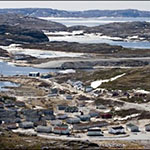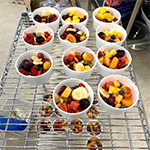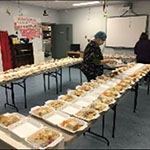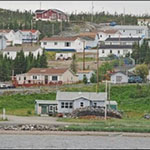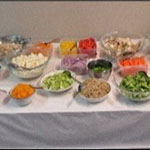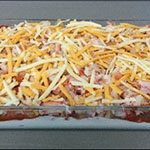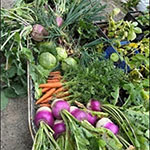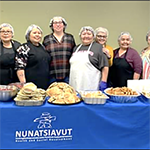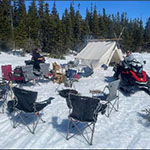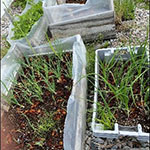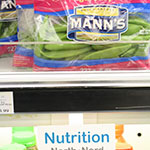Nutrition education initiatives promote healthy eating in Nunatsiavut
Photos: Sybilla Hunter, Lisa Palliser-Bennett, Jane Flowers, Barbara Edmonds, Kim Andersen, Chris Sampson and Nunatsiavut Tourism

In 2023, kitchens and other community spaces in isolated Northern communities were abuzz with activity. Thousands of participants in the Nutrition Education Initiatives program gathered to learn about healthy eating and develop skills in preparing meals for their loved ones.
Indigenous Services Canada and the Public Health Agency Canada fund and support the initiatives in communities eligible for the program. These activities reach many different participants such as children, youth, women and seniors, and complement Crown-Indigenous Relations and Northern Affairs Canada’s Nutrition North Canada program.
March is Nutrition Month, and we invite you to mark the occasion with a special feature courtesy of Inuit community workers in Nunatsiavut. Browse the photos below to find out how nutrition education initiatives are helping to address food security in isolated, northern and Arctic communities.
Nutrition North Canada (NNC) helps make nutritious store-bought and country foods more accessible and affordable to residents of 124 isolated northern communities without year-round road, rail or marine access.
Additionally, NNC contributes to food security with the introduction of the Harvesters Support Grant program and the Community Food Programs Fund.
As part of NNC, eligible isolated northern communities receive funding for culturally appropriate retail and community-based nutrition education activities for community members of all ages.
These activities improve access to a healthy diet through increased traditional and local knowledge of healthy eating, improved skills in selecting and preparing healthy store-bought and traditional or country foods, and building on existing community-based activities.
The Inuit community of Hopedale, Newfoundland and Labrador, is originally known by its Inuktitut name, Arvertok (the place of whales). A number of locally-led programs and events help support nutrition education and food security in the community. Programs include: kids in the kitchen, a soup kitchen, a breakfast program, and healthy taste testers.
"Cooking classes in the community of Hopedale give participants a better understanding of knowledge of healthy eating."
- Hilda Hunter, Community Health Worker
The nutrition education classes in Hopedale are a big hit with the community. Organizers saw attendance jump, with programs drawing over 200 residents weekly.
South of Hopedale in the town of Makkovik, nutrition education focuses on monthly taste testers, healthy recess at the schools, community breakfasts and meals for vulnerable populations.
"Nutrition education initiatives is an excellent program. Food draws people out and we sometimes use prizes that are useful to people to help with keeping them healthy. Example of prizes include snowshoes, reusable water bottles, Fitbits, etc."
- Kim Andersen, Team Leader, Makkovik.
"Thanks to NNC’s nutrition education initiatives, seniors and children indeed all community members get to eat healthy snacks and meals, which they may not always get at home."
- Barbara Edmonds, Team Leader, Postville
In Rigolet, nutrition education initiatives are making a difference in promoting healthy eating and food security by supporting weekly food demos, salad bars, high school cooking and health recess.
"I hear a lot of good feedback from the community kitchen activity. We learn and teach each other. A lot of the Nutrition Education Initiatives programs helps out families and brings people together. It feeds families and lifts people up to come out and socialize."
- Lisa Pallister Bennett, Community Health Worker, Rigolet
"The Nutrition Education Initiatives is a wonderful program."
- Wilma Jenkins, NNC Community Health Worker, Nain
As part of Nain’s Nutrition Education Initiatives program, the community hosts school breakfast programs and healthy taste tests twice a month.
Nutrition education activities have taken place in a variety of venues, including schools, daycares, stores and community centres.
Participants have also gathered on the land to discuss the importance of traditional foods and community freezer programs in tackling food insecurity.
In 2022 and 2023, nutrition education initiatives funded through Indigenous Services Canada drew nearly 33,000 participants across isolated northern First Nations and Inuit communities. There were 3,000 varied activities reported where participants discussed healthy eating and food skills, participated in store taste tests and tours, shared knowledge about gardening and local harvesting activities and offered healthy meals, good food box and food hamper projects.
Meanwhile, the Public Health Agency of Canada funded and supported more than 880 nutrition education activities to more than 2,400 residents. Clearly, NNC’s support of nutrition education is making a valued impact.
